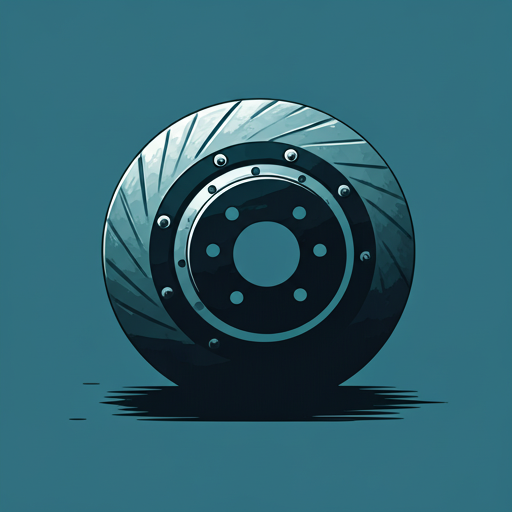
Why You Shouldn't Run Slotted Brake Rotors on the Street
Why You Shouldn't Run Slotted Brake Rotors on the Street
When it comes to upgrading your car’s braking system, slotted brake rotors often come up as an attractive option. Their aggressive appearance and promise of improved performance make them a popular choice, especially among car enthusiasts and track-day aficionados. However, when it comes to daily driving and street use, slotted rotors may not be the best choice. Let’s take a closer look at why you should reconsider running slotted brake rotors on the street.
1. Increased Brake Pad Wear
Slotted rotors have grooves cut into the surface, designed to improve brake pad contact and allow gases and heat to escape during hard braking. While this design can offer benefits on the track, it can significantly increase brake pad wear on the street. The grooves tend to wear down pads faster, especially if you aren’t constantly pushing your braking system to its limits.
On regular street driving, where hard braking is rare, you might find yourself replacing brake pads more frequently than with smooth, standard rotors. This added cost and hassle can quickly outweigh any benefits.
2. Increased Noise and Vibration
One of the characteristics of slotted rotors is the extra noise and vibration they generate during braking. The grooves create a more abrasive surface, which can lead to a noticeable increase in brake noise, such as squeaking or grinding, particularly at lower speeds. For everyday street use, this can be an annoyance, detracting from the quiet and smooth driving experience most people seek in their vehicles.
3. Reduced Brake Performance in Wet Conditions
While slotted rotors are designed to improve braking performance under heavy loads by venting gases and reducing brake fade, they don’t necessarily perform better in wet conditions. On the street, wet weather is common, and slotted rotors can actually reduce braking performance in rain, snow, or fog. The slots can trap water and reduce the rotor’s ability to make proper contact with the brake pads, leading to reduced stopping power when you need it most.
4. Potential for Rotor Cracking
Another issue with slotted rotors is the potential for rotor cracking. The process of slotting the rotor can create stress points, which, over time, can lead to cracking, particularly if the rotors are subjected to constant heat cycles. While this is less of a concern for track cars that see heavy use, on the street, where driving tends to be more varied and less aggressive, the likelihood of stress cracks increases. This can compromise the rotor’s structural integrity, leading to expensive replacements and potential safety risks.
5. Unnecessary for Everyday Driving
In reality, slotted rotors are often overkill for daily driving. The majority of street driving doesn’t demand the kind of extreme performance that slotted rotors are designed for. On normal commutes, your braking system is rarely pushed to its limits, and standard, solid rotors will do just fine. The benefits of slotted rotors—such as improved cooling and enhanced braking in high-performance situations—simply aren’t necessary on the street, where most driving involves moderate speeds and less intense braking.
6. Higher Costs
Because slotted rotors are more specialized and require more intricate manufacturing processes, they tend to be more expensive than their solid counterparts. The added cost of purchasing and maintaining slotted rotors for street use may not provide enough tangible benefits to justify the price tag.
7. Comfort Over Performance
If you’re focused on improving the driving comfort and experience on the street, slotted rotors might not be the best choice. They can contribute to a rougher, less comfortable ride due to the increased noise, vibration, and potential for harsher braking. For daily driving, having a more comfortable, quieter ride is often a priority, and smooth rotors are the way to go.
Conclusion: Stick to Solid Rotors for the Street
In conclusion, while slotted rotors offer performance benefits for cars used in racing or other high-performance scenarios, they aren’t the best choice for everyday street driving. They can increase brake pad wear, generate unwanted noise, reduce braking performance in wet conditions, and may even lead to rotor cracking. For most drivers, solid rotors are the better choice for reliability, comfort, and cost-effectiveness.
Unless you’re actively racing your car or pushing it to its limits regularly, standard rotors will give you the best performance and longevity for street use. Stick to the basics, and save the slotted rotors for track-day warriors or high-performance vehicles that need them.
